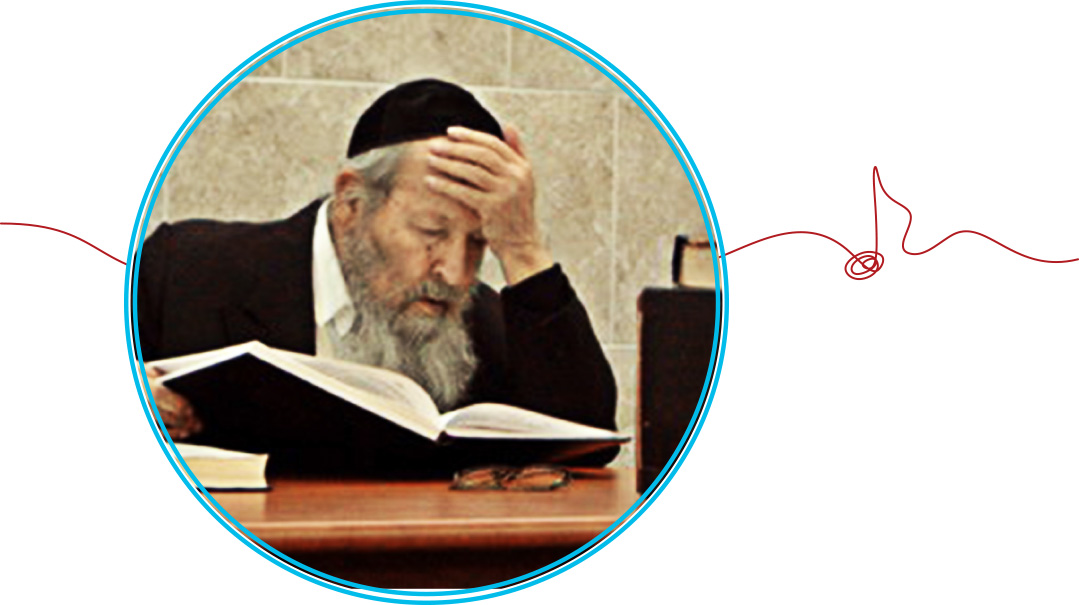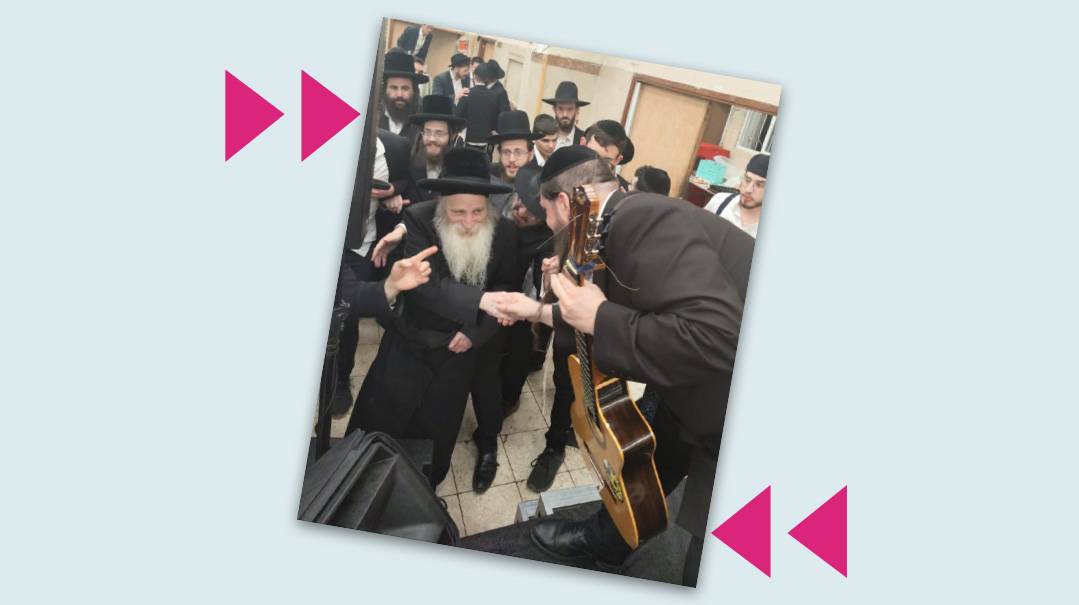A Song Born in the Beis Medrash: Rav Moshe Shmuel Shapiro — It Flowed from the Same Source
| May 11, 2021For certain venerated roshei yeshivah, music was known as integral to their avodah

Across the ocean, RAV MOSHE SHMUEL SHAPIRO (1917–2006), rosh yeshivah of Yeshivas Beer Yaakov in southern Eretz Yisrael, was known, in yeshivah terms, as a “baal menagen.” A great-grandson of the Netziv of Volozhin and a nephew of Rav Chaim Brisker, this aristocratic Torah leader was asked by the Chazon Ish to establish his own yeshivah in Beer Yaakov in 1950, and his sublime niggunim live on in the memories of talmidim.
While talmidim from the earlier years don’t recall the Rosh Yeshivah singing with them, the later Beer Yaakov talmidim remember Rav Moshe Shmuel’s singing on special occasions, and many of those niggunim are widely assumed to be his compositions. He would sing with the bochurim at Kiddush on Shabbos mornings, at Shalosh Seudos, at mesibahs in the yeshivah, and at close family weddings. One of the most famous niggunim is the slow and moving “Sim, sim, sim shalom...” which has been attributed to Rav Boruch Ber Leibowitz of Kamenitz. Rav Moshe Shmuel said he’d once heard Rav Boruch Ber sing it at a pre-war chasunah.
Was there any precedent for this outpouring of song in the solemn world of Lithuanian yeshivos? During World War I, Rav Boruch Ber Leibowitz’s yeshivah, Kenesses Beis Yitzchok, took refuge in the city of Minsk. The talmidim asked Rav Boruch Ber to teach them a new niggun to raise their spirits. Rav Boruch Ber would not do this without consulting with his own rebbe, Rav Chaim Brisker — and when Rav Chaim gave his approval, Rav Boruch Ber subsequently taught several songs. Rav Moshe Shmuel occasionally quoted this story to explain to his own bochurim that he relied on these two great men to find a place for singing within the hallowed framework of the yeshivah.
It is said that once Rav Boruch Ber composed a new niggun that he sang to the words “Tzur Yisrael...” of the brachah before Shemoneh Esreh. When his rebbe, Rav Chaim, commented that these were not suitable words to sing, he stopped singing it. But the tune lived on, and it was this melody that Rav Moshe Shmuel Shapiro used for words from the Shavuos yotzros “Ve’atah banim shiru lamelech...”
Rabbi Hillel Paley, maggid shiur in Yeshivas Chemdas HaTorah in Beit Shemesh and a prolific and popular composer, says that this tune was actually an inspiration for one of his own most popular compositions.
“My father, Reb Yehuda (Yudke) Paley, was very close to Rav Moshe Shmuel Shapiro. Many years ago, the Rosh Yeshivah attended a sheva brachos, and my father and I watched as the baalei simchah asked the Rosh Yeshivah for a niggun. Rav Moshe Shmuel sang ‘Ve’atah Banim’ and the words captivated me and lodged themselves in my heart. They seemed to demand to be sung. A year later, I wrote my own tune.” (Hillel Paley’s catchy “Shiru Lamelech” became the title track of a Yeedle Werdyger album.)
Rav Moshe Shmuel never considered niggun as a distraction from Torah; for him, it was Torah’s complement. He sang seriously, with tremendous dveykus and uplift. The mashgiach of Beer Yaakov, Rav Shlomo Wolbe, would comment that his songs flowed from the same place as his Torah. Rav Moshe Shmuel’s other iconic niggunim included “Shiru Lo” (in his memorable Lithuanian pronunciation, it was “Shiru, shiru lay, zamru, zamru lay”). Rav Moshe Shmuel used to interpret the words he sang as follows: “Shiru lay, zamru lay —sing to Him, make music to Him — when? Sichu bechol nifleosav — by speaking of the wonders of his Torah.”
Other songs he was known for were his original tune for “Min Hameitzar,” and what is known as “Reb Boruch Ber’s Kah Ribbon.” On Shavuos and Rosh Hashanah, the yeshivah would traditionally sing a special niggun for Adon Olam, that was attributed to Rav Yerucham Levovitz, whom Rav Moshe Shmuel had been connected to in pre-war Mir.
People would gather around to watch the Rosh Yeshivah sing at the end of chasunahs, when he appeared elevated and princely. While they were not professionally recorded until years later, his talmidim took those special niggunim with them. “Min Hameitzar” and “Sim Shalom” were released on the 1994 Gateshead Boys Choir album Chayim Shel Tovah.
Rav Moshe Shmuel’s talmid Reb Avremel Rosenbaum recalls walking with the Rosh Yeshivah when he had already reached an advanced age, and saying to him, “We haven’t heard any new songs for a long time.” Rav Moshe Shmuel answered, “Shlomo Hamelech wrote Shir Hashirim, but then he wrote Koheles and Mishlei. He began with songs, he turned to chochmah [wisdom], and at the end, he concluded that ‘Hakol havel.’”
(Originally featured in Mishpacha, Issue 860)
Oops! We could not locate your form.












